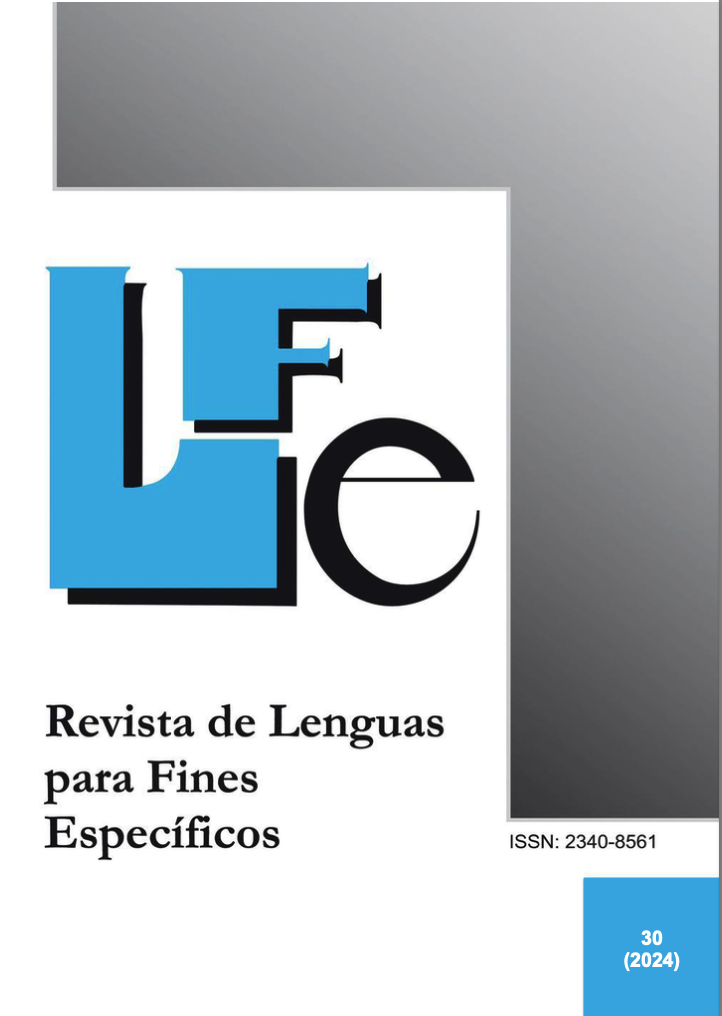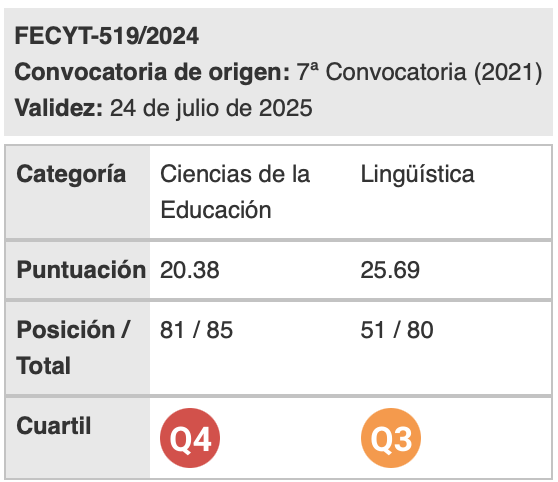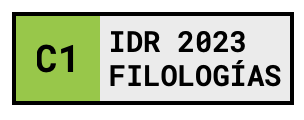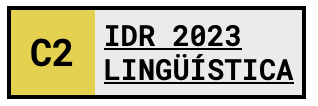Political translation in institutional contexts (EN-FR-ES). Case study: Biden’s inaugural speech
DOI:
https://doi.org/10.20420/rlfe/2024.702Keywords:
translation, politics, institutional translation, Discourse Analysis, rhetoricsAbstract
This paper attempts to analyse the translation of Biden’s inaugural address into French and Spanish in order to describe the translation procedures employed when translating the pragmatic, discursive and rhetoric aspects inherent to presidential genres from the source text to the target text, following the theoretical framework of authors such as Austermühl (2014) in institutional contexts. To do so, we have used corpus management and qualitative analysis tools which have served as a basis for undertaking a more complex study of contrastive nature in which we have compared the categories of Political Discourse Analysis previously defined by other researchers. Results confirm that in both French and Spanish different translation strategies are employed in order to translate the rhetoric of political speeches, and that neither translated version has been ideologically oriented.
Downloads
References
Alcaraz Varó, E. y B. Hughes (2007 [1992]). Diccionario de términos jurídicos: inglés/español, español/inglés, 10.ª edición. Barcelona: Ariel.
Arce Castillo, Á. (2006). El lenguaje político. Recursos pragmático-discursivos en registros formales e informales. Salamanca: Ratio Legis.
Austermühl, F. (2014). The Great American Scaffold. Intertextuality and Identity in American Presidential Discourse. Amsterdam/Philadelphia: John Benjamins.
Bassnett, S. (1980). Translation Studies. London: Methuen.
Calsamiglia, H. y Tusón, A. (1999). Las cosas del decir. Barcelona: Ariel.
Charaudeau, P. (2009). La argumentación persuasiva. El ejemplo del discurso político. En M. Shiro et al., Haciendo discurso. Homenaje a Adriana Bolívar (pp. 277-295). Caracas: Facultad de Humanidades y Educación. Universidad Central de Venezuela.
Corpas Pastor, G. (2008). Investigar con corpus en traducción. Berlín: Peter Lang.
Even-Zohar, I. (1990). Polysystem Studies. Poetics Today, 1 (1-2), 287 310.
Fernández Lagunilla, M. (1999a). La lengua en la comunicación política I: el discurso del poder. Madrid: Arco/Libros.
Fernández Ulloa, T. (2019). The Rhetoric of Persuasion. Talking to Our Emotions. Círculo de lingüística Aplicada a la Comunicación, 80, pp. 3-6. DOI: https://dx.doi.org/10.5209/clac.66596.
Gallardo Paúls, B. (2014). Usos del lenguaje político. Un discurso paradójico. Barcelona: Anthropos.
Ghignoli, A. y Montabes, A. (2014). La traducción y los géneros periodísticos. La traductología en Brasil (2). Mutatis Mutandis. Revista Latinoamericana de Traducción, 7(2), 386-400.
Guerrero Salazar, S. y E.A. Núñez Cabezas (2002): El lenguaje político español. Madrid: Cátedra.
Hermans, T. (1985). The manipulation of literature. Studies in literary translation. London: Croom Helm.
Hernández Guerrero, M. J. (2008). Las traducciones periodísticas. Entre la aceptabilidad y el trasvase lingüístico. Hermeneus, 10, 109 125.
Hurtado Albir, A. (2001). Traducción y Traductología. Introducción a la Traductología. Madrid: Cátedra.
Hurtado Albir. A. y L. Molina (2002). Translation techniques revisited: a dynamic and functionalist approach. Meta: Journal des traducteurs/translator’s journal, 47(4), 498 512.
Lefevere, A. (1992). Translation/History/Culture: a sourcebook. London: Routledge.
Ortega Arjonilla, E. (2010). Sobre la traducción de la terminología en los textos filosóficos y sociopolíticos (francés-español). Anales de Filología Francesa, 18, 419 437.
Ortega Carmona, A. (1995). El discurso político. Retórica-Parlamento-Dialéctica. Madrid: Fundación Cánovas del Castillo.
Perelman, C. y O. Olbrechts-Tyteca (1994 [1958]). Tratado de la argumentación. La nueva retórica. Madrid: Gredos.
Schäffner, C. y S. Bassnett (2010). Political Discourse, Media and Translation. Newscastle upon Tyne: Cambridge Scholars Publishing.
Toury, G. (1985). A Rationale for Descriptive Translation Studies. En Hermans, T. (Ed.), Communication Yearbook 12. Newbury Park, CA: Sage, 18-59.
Van Dijk, T. A. (1996). Análisis del discurso ideológico. En Versión 6, 15 43. <http://www.discursos.org/oldarticles/An%E1lisis%20del%20discurso%20ideol%F3gico.pdf>.
Van Dijk, T. A. (2009). Discurso y poder. Barcelona: Gedisa.
Van Doorslaer, L. (2010). The Belgian conflicto frame. The role of media and translation in Belgian political ideologies. En C. Schäffnery S. Bassnett (Eds.), Political Discourse, Media and Translation (PP. 198-211). Newscastle upon Tyne: Cambridge Scholars.
Verón, E. (1987). La palabra adversativa. Observaciones sobre la enunciación política. En E. Verón, L. Arfuch y M.ª M. Chirico (Eds.), El discurso político. Lenguajes y acontecimientos (pp. 13-26). Buenos Aires: Hachette.
Downloads
Published
How to Cite
Issue
Section
License
Copyright (c) 2024 María del Carmen López

This work is licensed under a Creative Commons Attribution-NonCommercial-NoDerivatives 4.0 International License.
Authors who publish with this journal agree to the following terms:
- Authors retain copyright and grant the journal right of first publication with the work simultaneously licensed under a Creative Commons Attribution License that allows others to share the work with an acknowledgement of the work's authorship and initial publication in this journal.
- Authors are able to enter into separate, additional contractual arrangements for the non-exclusive distribution of the journal's published version of the work (e.g., post it to an institutional repository or publish it in a book), with an acknowledgement of its initial publication in this journal.
- Authors are permitted and encouraged to post their work online (e.g., in institutional repositories or on their website) prior to and during the submission process, as it can lead to productive exchanges, as well as earlier and greater citation of published work (See The Effect of Open Access).

Revista de Lenguas para fines específicos is licensed under a Creative Commons Reconocimiento-NoComercial-SinObraDerivada 4.0 Internacional License.

























